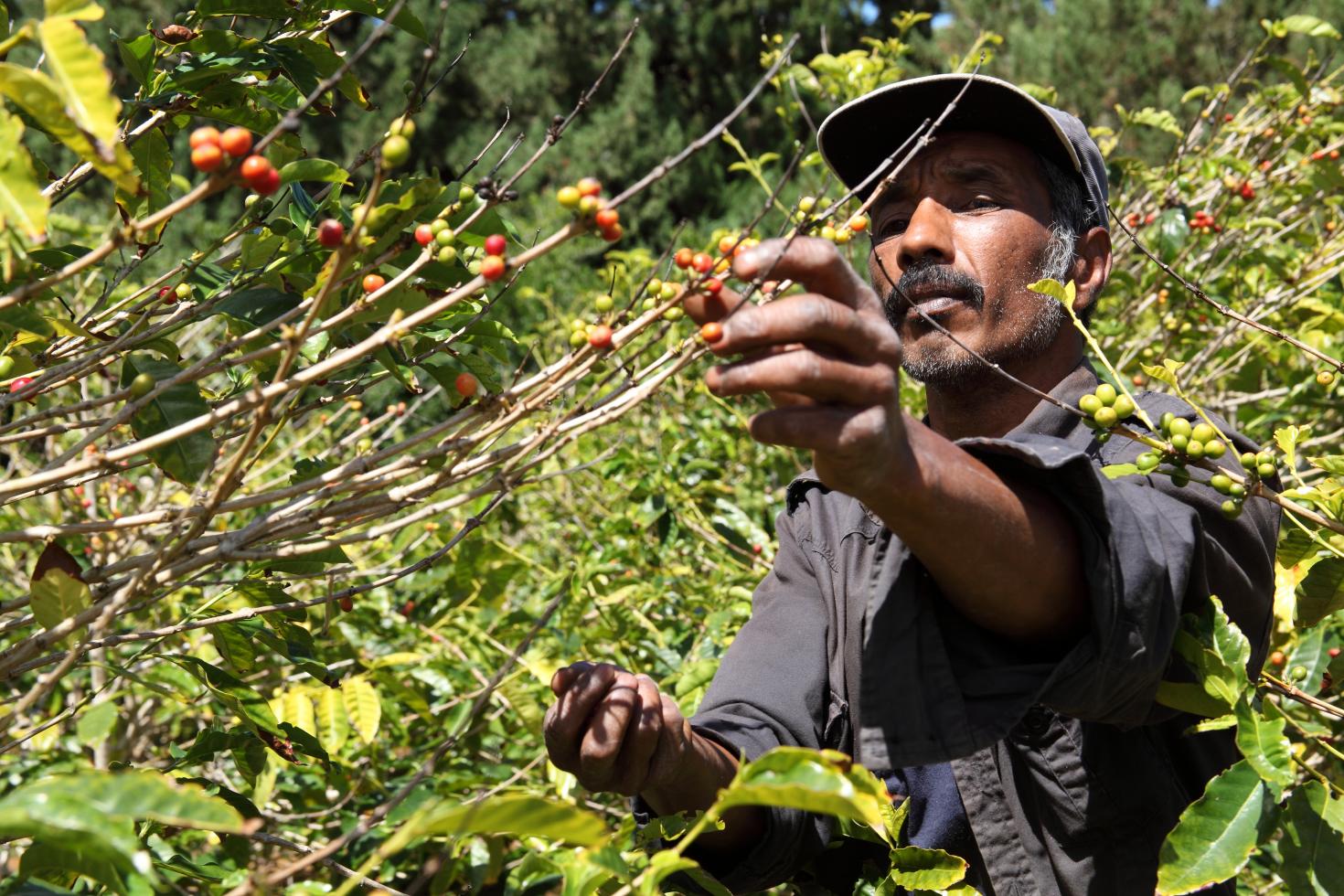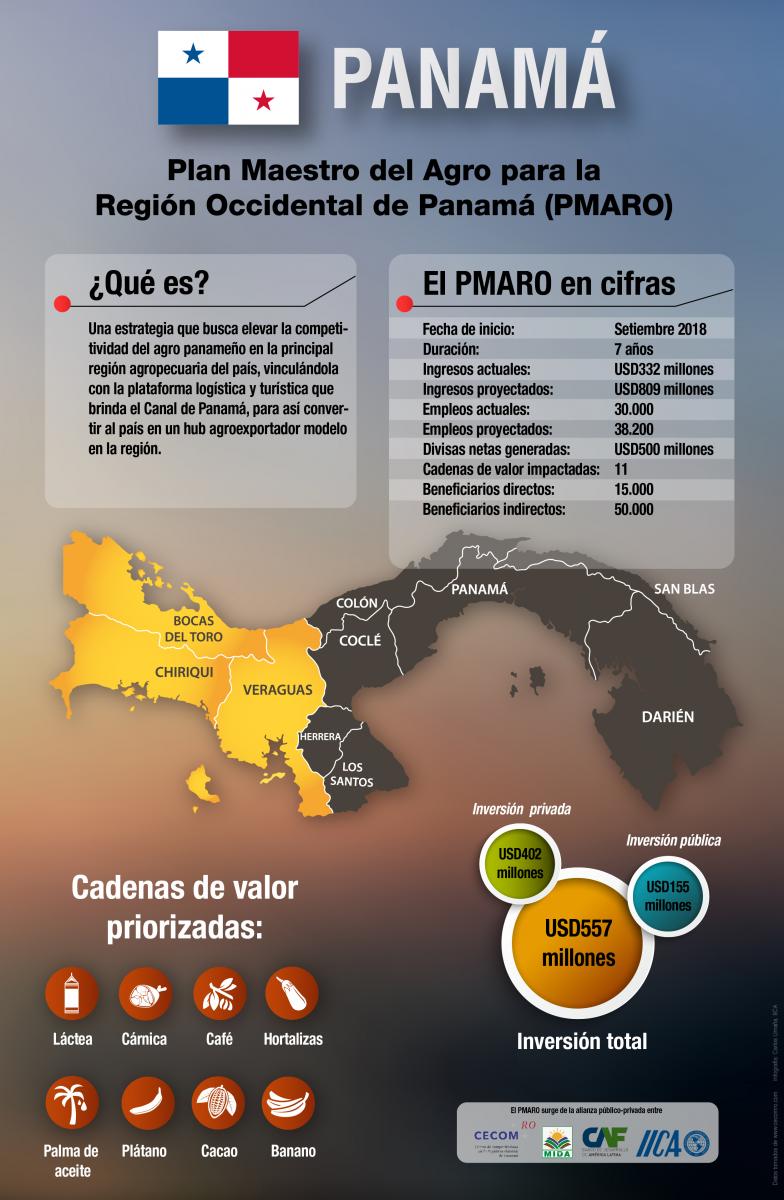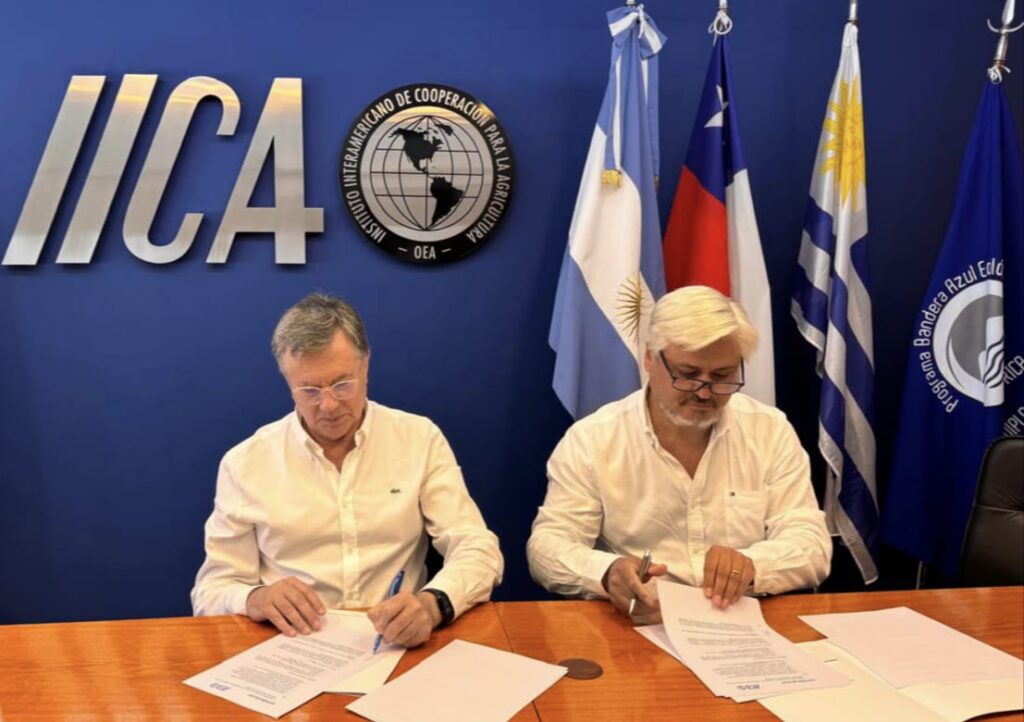Representantes del sector público y privado y de organismos internacionales acordaron estrategias para dar impulso a un nuevo actor con un gran potencial.

San José, 30 de julio, 2018 (IICA). El canal interoceánico y los desarrollos inmobiliarios, asociados a la banca, el comercio y otros servicios, han sido por años los grandes impulsores de la economía de Panamá.
El desarrollo del país, sin embargo, no ha sido homogéneo ni alcanzó la totalidad del territorio nacional, por lo que representantes de los sectores público y privado y organismos internacionales acordaron una estrategia para dar impulso a un nuevo actor con un gran potencial: el agro.
Se trata de un programa cuya ejecución contempla siete años de plazo, denominado Plan Maestro del Agro de la Región Occidental (PMARO), y que tiene como objetivos potenciar la capacidad instalada que proporcionan el canal y sus servicios asociados para que unos 15.000 productores agropecuarios garanticen la seguridad alimentaria del país y se inserten con mayores ventajas a los mercados nacionales e internacionales.
El Plan Maestro, que comenzará a ejecutarse entre agosto y setiembre próximos, contempla como sus pilares una previsión de inversiones públicas y privadas de 557 millones de dólares, con miras a fomentar la productividad, la diversificación, los encadenamientos productivos, la generación de empleos y el desarrollo turístico, y promover una drástica reducción de la desigualdad (ver infografía abajo).
“CAF conjuntamente con el Estado y el sector privado local está impulsando el desarrollo territorial integral financiando inversiones públicas en la Región Occidental como el Plan Maestro del Agro”, comentó la Directora Representante de CAF- Banco de Desarrollo de América Latina en Panamá, Susana Pinilla.
“Apoyamos a las organizaciones locales a poner en valor las oportunidades de inversión, desarrollo e inclusión de las regiones de Panamá para que acompañen el crecimiento y los grandes proyectos de la Ciudad Capital”, agregó Pinilla.
El 80 por ciento de la riqueza panameña se concentra alrededor del canal, situación que a la larga puede generar conflictos sociales, alertó recientemente la CAF.
El Plan Maestro servirá para vincular al sector agrícola local con la plataforma que brinda el canal en materia logística y de turismo, buscando convertir al país centroamericano en un nodo agroexportador modelo para la región.
Desde su lanzamiento hace poco más de dos años, estas iniciativas han tenido como uno de sus principales productos el Plan Maestro del Agro que ha dado pasos significativos. Así también se ha logrado la creación de tres centros regionales de competitividad, plataformas que desde el sector privado actúan identificando oportunidades concretas de inversión y elaborando propuestas de políticas públicas en las regiones de Azuero, Colón y Occidente.
En Occidente que cubre las Provincias de Chiriquí y Bocas del Toro y la Comarca Ngabe Buglé, programas verticales de largo plazo han sido diseñados en cadenas de valor seleccionadas, como la láctea, cárnica, aceite de palma, hortalizas, café, plátano, banano y cacao, a las que podrían sumarse otros productos como tubérculos y raíces, arroz y papa.
“En la región de Azuero, que incluye las provincias de Herrera, Los Santos y el sur de Veraguas, se trabajará en la recuperación de productos como la leche y la carne así como cultivos como arroz, maíz, tomate industrial, caña de azúcar, melón, sandía, ñame y otoe, productos que en los últimos años han reducido las áreas de siembra y los rendimientos por hectáreas”, aseguró Gerardo Escudero, Representante en Panamá del Instituto Interamericano de Cooperación para la Agricultura (IICA), que respalda técnicamente al Plan.
“En la región de Azuero, el programa impulsado por su centro de competitividad contempla lograr la eficiencia en la producción de leche grado C, actividad de la que dependen más de 6 mil pequeños ganaderos”, agregó Escudero.
“Panamá reúne las condiciones para constituirse en un hub agroalimentario porque somos el país más interconectado del hemisferio. La idea no es solo desarrollar facilidades logísticas; es incorporar a Panamá en la cadena de valor, establecer procesos de manufactura, aprovechar la red de acuerdos comerciales y las normas de origen, al igual que los regímenes especiales como las zonas francas y las SEM, a fin de que podamos robustecer nuestras exportaciones” indicó Felipe Rodríguez, director del Centro de Competitividad para la Región Occidental.
Para la primera fase de dos años del Plan Maestro del Agro para Occidente, se firmó un crédito con la CAF por 27,6 millones dólares destinado a apoyar al Ministerio de Desarrollo Agropecuario (MIDA) para generar capacidad instalada y a atender a unos 2.500 productores.
Solo en la región Occidental se espera sostener y mejorar la calidad de los 30.000 empleos y generar alrededor de 10.000 nuevas plazas laborales.
Empresarios de México, Nicaragua, Costa Rica y España ya se han acercado vislumbrando oportunidades de negocios comerciales entre países, que incluye, entre otras acciones, la provisión de tecnología, sistemas inteligentes de información de mercados y oportunidades de inversiones y sistemas avanzados de riego.

Más información:
Gerardo Escudero, Representante del IICA en Panamá










